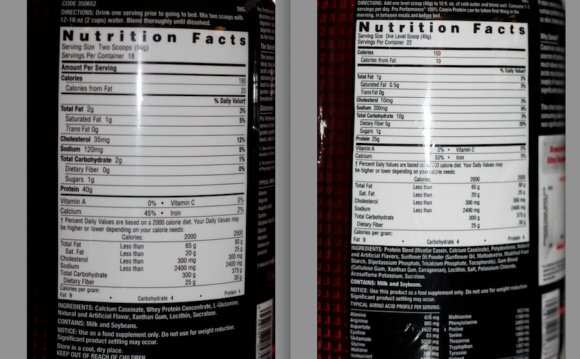

The Science of Protein
All proteins contain carbon, hydrogen, oxygen, and nitrogen. Some proteins even have sulfur in them. These elements make up the building blocks of proteins - the amino acids. There are twenty basic types of amino acids.
Proteins are composed of both essential and nonessential amino acids:
- Essential amino acids must be obtained through food as the body cannot synthesize these.
- Nonessential amino acids are still important to construct our body’s proteins. The name just means it is not necessary for us to ingest them because our bodies can synthesize them.
The Effects of Calorie Intake and Training
Protein can be metabolized as a source of energy when you are experiencing a negative caloric balance. That means when you eat fewer calories than you expend.
There is an inverse relationship between your caloric intake and your actual protein requirement. When caloric intake goes down, protein requirement goes up and vice versa. In addition, individuals who have a negative caloric balance and consume lower-quality proteins will need an even higher amount of protein than would normally be consumed.
"There is an inverse relationship between your caloric intake and your actual protein requirement. When caloric intake goes down, protein requirement goes up and vice versa."
For athletes, protein requirements are increased due to training. Both aerobic endurance training and resistance training can increase protein need. For aerobic athletes, protein is required for tissue repair and the use of branched-chain amino acids for fuel. For strength athletes, protein is required for tissue repair, along with the maintenance of a positive nitrogen balance.
 Okay enough of the biology, right? Let’s get down to the meat and potatoes of this article - should you use whey or casein protein and why?
Okay enough of the biology, right? Let’s get down to the meat and potatoes of this article - should you use whey or casein protein and why?
Whey Protein - The Facts
You will see whey protein the most in the supplement stores. Whey is a component of cow’s milk and accounts for about 20% of its protein content. Interestingly, most whey is produced as the byproduct of cheese manufacturing. (Remember Little Miss Muffet?)
Whey protein includes all the essential amino acids (remember those?) and is especially high in branched-chain amino acids, which are key for muscle protein synthesis. Whey protein has more sulfur-containing amino acids than its counterpart, casein. Because of this trait, it has a slightly higher level of biological utilization than other proteins.
"Interestingly, most whey is produced as the byproduct of cheese manufacturing."
Whey is considered a fast protein source. It digests fairly quickly, which causes a rapid increase in amino acid levels in the body. After consuming whey protein, blood amino acid levels peak at around sixty to ninety minutes after ingestion. This peak is short lived and is not sustained past two to three hours.
When protein floods the body with amino acids in this way, some of the protein is oxidized or wasted as excess. Since whey protein is so quickly digested, this is the protein you want to use right after your training session. This is because your muscles have broken down from your workout, and since whey protein is so fast acting, it can aid in muscle repair by increasing muscle synthesis.
Casein Protein - The Facts
This type of protein is the most abundant form in cow’s milk, accounting for about 80% of its protein content. All forms of casein contain a high-quality blend of essential, nonessential, and branched-chain amino acids. Unlike whey, casein contains a fairly low percentage of branched-chain amino acid and has a lower biological utilization rate.
Casein is a slow-digesting protein. The body digests casein’s amino acids in a steady manner that keeps their levels well maintained after ingestion. Thus, casein produces a stable elevation of amino acids that lasts for up to seven hours.
Casein does not have an amino acid spike like whey protein does. Therefore, less protein is oxidized or wasted. Because of this, casein increases protein synthesis to a lesser extent than whey, but reduces whole body protein breakdown. Casein produces greater positive overall protein balance compared to whey. Casein is usually known as “anti-catabolic” because of this slow acting nature.
Casein is ideal for nighttime use or as a meal replacement, when you know you will not eat for three hours. Since casein is so slow acting, it is not ideal for your post-workout protein. This is because your muscles will not get the immediate benefit of muscle repair shortly after exercise, like they can with whey ingestion.
YOU MIGHT ALSO LIKE












